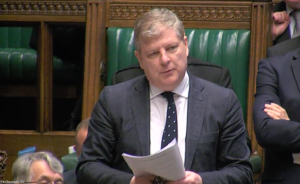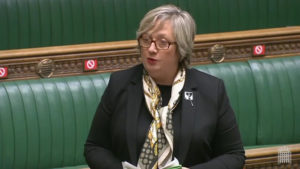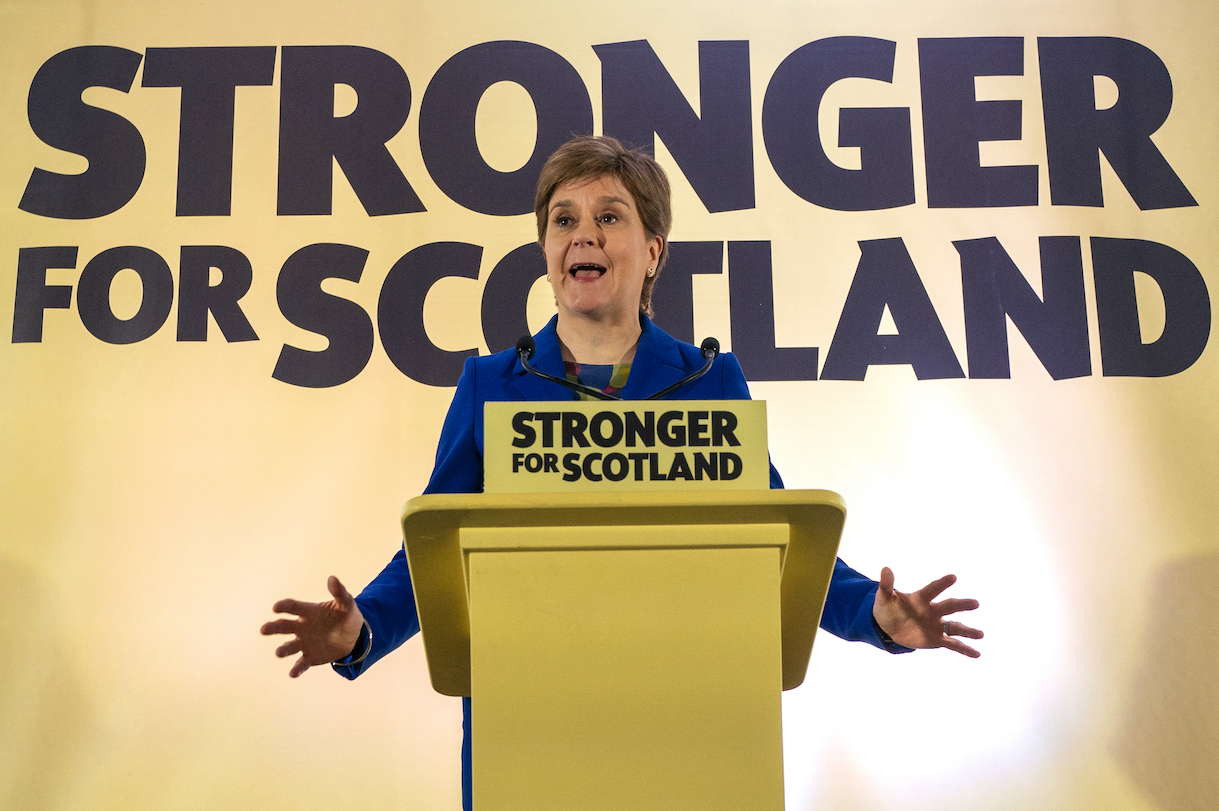Nicola Sturgeon has formally announced her resignation as Scottish first minister after well over a decade spent at the apex of Scottish politics, as both deputy first minister and first minister.
Speaking at Bute House in Edinburgh, Ms Sturgeon said that she had believed since first taking the role that “part of serving well” is to know when the time is right to stand down.
“In my head and in my heart I know that time is now, that it is right for me, for my party and for the country. And so today I am announcing my intention to step down as First Minister and leader of my party”, she added.
It comes following an extended period of whispers about Sturgeon’s future, begun by a series of debacles.


If the Supreme Court’s ruling on a second independence referendum was an expected, if difficult, setback — then the recent row over a transgender prisoner has proved both unexpected and deeply politically fraught. Internal party critics have argued such battles have scuppered momentum for Scotland’s latest independence push.
These issues, made worse by the fallout of the gender self-identification bill which has been blocked by the government, have seen a feeling of unease creep into the ranks of the Scottish National Party.
But with a period of reflection on the rights and wrongs of Sturgeon’s premiership well underway, the focus is moving swiftly to the matter of who will take over from Sturgeon as party leader and hence Scottish first minister.
Politics.co.uk has analysed the profiles of the key runners and riders below:
Option 1 – Angus Robertson
According to the bookies, Angus Robertson is the favourite to replace Ms Sturgeon. The Edinburgh Central MSP has found his way back from the political wilderness after a humiliating defeat at the 2017 general election, which saw the then-leader of the SNP at Westminster unseated by Douglas Ross, the current leader of the Scottish Conservatives.

Angus Robertson was leader of the SNP at Westminster for a decade from 2007-2017
Robertson is viewed as close to Nicola Sturgeon, with the two operating in tandem as first minister and SNP leader at Westminster from 2014 – 2017. He currently serves as the constitution secretary in Holyrood where both he and Sturgeon have jointly prosecuted the case for Scottish independence.
However, some in the party may view Robertson as too close to the ancien régime, with many in Scottish politics clamouring for a break from the past.
Option 2 – Kate Forbes
Finance secretary Kate Forbes is a close second favourite, and would be viewed as a proving a possible break from the Sturgeon era. She is seen as the rising star of the party, with the 32-year-old forced to deliver the Scottish government’s budget in 2020 just hours after predecessor Derek Mackay quit. It made her the first woman to deliver a Scottish budget.
The tendency in Scottish politics for political secession to have generational implications will benefit Forbes’ cause. The changing of the SNP guard at Westminster, which saw Stephen Flynn (34) and Black (28) oust Ian Blackford (61) and Kirsten Oswald (50) as group leader and deputy respectively, may hold good omens for the Scottish finance secretary.
Forbes is also a strong media performer and someone who could potentially connect with the grassroots who are fed up with what they see as a cautious approach to independence.
However, Forbes is currently on maternity leave, having given birth in August. How easily she could replace Sturgeon may rely on the length of the transition period, so she can return to Holyrood and pick up momentum.
Forbes’s own personal views may also prove a barrier. She has been categorised on the pro-business, economically liberal wing of the party, with much of the SNP situated on the political left.
Furthermore, in 2018, Forbes made an anti-abortion statement at a prayer breakfast, claiming the treatment of the “unborn” is a “measure of true progress”. It came one day after a Westminster debate on abortion. Forbes is an evangelical Christian, and she has previously outlined that while she has never tried to hide her faith, she has been as guilty of “tiptoeing around it”.
Forbes was also one of 15 SNP politicians who signed a public letter calling on the Scottish Government to delay its manifesto commitment to reform the Gender Recognition Act in Scotland in 2019. During the final voting stage on the Gender Recognition Reform Bill last December, Forbes was the only SNP MSP to abstain.
Given the current furore over self-ID in Scotland, her election could precipitate a u-turn from the SNP on trans rights issues.
Option 3 – John Swinney
John Swinney would be viewed as a safe option and some very close to Sturgeon, having served as her deputy first minister since 2014.

John Swinney was previously leader of the SNP from 2000-2004
At 58 years old he is a member of the “old guard” in Scottish politics, meaning he possesses the most experience of the possible candidates. Swinney has held most top jobs in the Scottish government — including almost a decade as the finance secretary, the post now held by Forbes.
However, Swinney has already served as leader of the SNP from 2000 to 2004 after Alex Salmond’s first resignation. Many look up Swinney’s tenure in charge of the party dimly — his leadership quickly saw Salmond return to the fold as leader in 2004.
Ultimately, Swinney’s experience means he is widely expected in Holyrood, but the SNP grassroots may want a more youthful voice to pick up Sturgeon’s torch and continue the fight on independence.
Option 4 – Humza Yousaf
Scotland’s 37-year-old health secretary Humza Yousaf is another among the favourites to take over. A strong media performer, he led the country’s response to the Covid crisis, making him a household name in Scotland.
Despite making up part of a newer generation of SNP figures, having become a Glasgow MSP in 2011, Yousaf has held a number of senior posts in government, including as transport minister, Europe minister and justice secretary.
However, the SNP administration’s record on the NHS has come under fire due to large waiting lists and long A&E waiting times. And as the cabinet secretary for justice in 2018, he was also responsible for introducing the Hate Crime Bill, which caused controversy among opposition parties.
Option 5 – Joanna Cherry
Cherry is perhaps the largest “anti-Sturgeon” figure in the SNP ranks and has been a vocal critic of the gender reforms which have helped topple the first minister.

Cherry, who is not an MSP, is an outsider pick to replace Sturgeon as SNP leader
She would be an outside bet as a thorn in the current leadership’s side, having been linked with a move to Alex Salmond’s Alba Party. Cherry insisted that Salmond should have been reinstated by the party after he was cleared of sexual assault charges.
Despite this, she remains popular with sections of the party faithful and her opposition to gender reform may have won her support in some quarters. However, she currently is not a Member of the Scottish Parliament and therefore not a possible candidate for the position of Scottish first minister.
What next?
Evidently, the winds of change are blowing through Scottish politics. It means that whoever takes over as SNP leader will have a number of challenges on their hands. The new leader will have to decide the way forward on the GRR Bill, with the legislation currently blocked by the UK government on the grounds that this would potentially damage women’s rights under the UK Equality Act.
The path forward for the independence argument is also unclear. Holyrood was ruled not to have the power to legislate for the advisory referendum Sturgeon hoped to hold in October this year. Will a new leader continue Sturgeon’s “de facto” referendum approach at the next general election?
On both these issues the SNP is accursed with infighting. A new leader would therefore not only have to establish a new Scottish dynasty after a decade of Sturgeonite domination, but also piece their fractured party back together.

